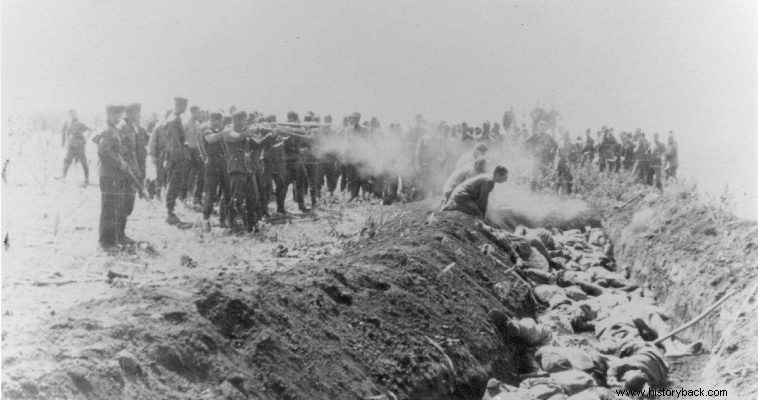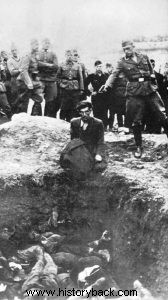
Operation "Harvest Festival" was one of the biggest crimes ever committed. It was not just a "celebration", but the harvest of human lives was great. The operation was decided after the cases of Jewish resistance against the German executioners. It was the largest massacre of its kind, with the exception of that of Odessa.
1943 was the year when three major Jewish uprisings broke out, those in the Warsaw Ghetto, and those in the extermination camps of Treblinka and Sobibor. Other uprisings also broke out in the Vilnius ghetto and in Bialystok. The Germans, fearing new, more massive, uprisings, also due to their military failures on the Eastern Front, decided to exterminate all the Jews who worked as slave laborers in the various concentration camps in the area.
Essentially, the Germans decided to murder the already imprisoned Jews of the wider area of Lublin, Poland. Groups of prisoners were led to selected points "for digging anti-tank trenches..." , as they were told. They were actually mass graves.
The operation was supervised by SS colonel, former German police inspector Christian Wirth , an absolutely ruthless guy, who was also responsible for the extermination camps of Treblinka, Sobibor and Belcek, where almost 2 million people died in the gas chambers.
On November 3, 1943, hell opened its gates for the surviving Jews. The men of the infamous 101st Reserve Police Battalion (101st EAT) , consisting of Germans, along with Sonderdienst, men Soviet citizens and men of German origin from eastern countries arrived at the camps of Majdanek, Travniki and Poniatova and began to take, in groups, the Jewish prisoners.
The victims were taken before the mass graves and murdered there. In order to cover the sounds of the gunfire, the Germans had put on background music. In Majdanek and Travniki everything ended that day. In Poniatova, however, the executions continued on November 4 because the prisoners in one block revolted. The SS set fire and burned the insurgents alive.
At least 42,000 Jews were killed during this operation. The protagonists of the massacre were the men of the 101st EAT, who before the war lived quietly in Hamburg as ordinary everyday people...

